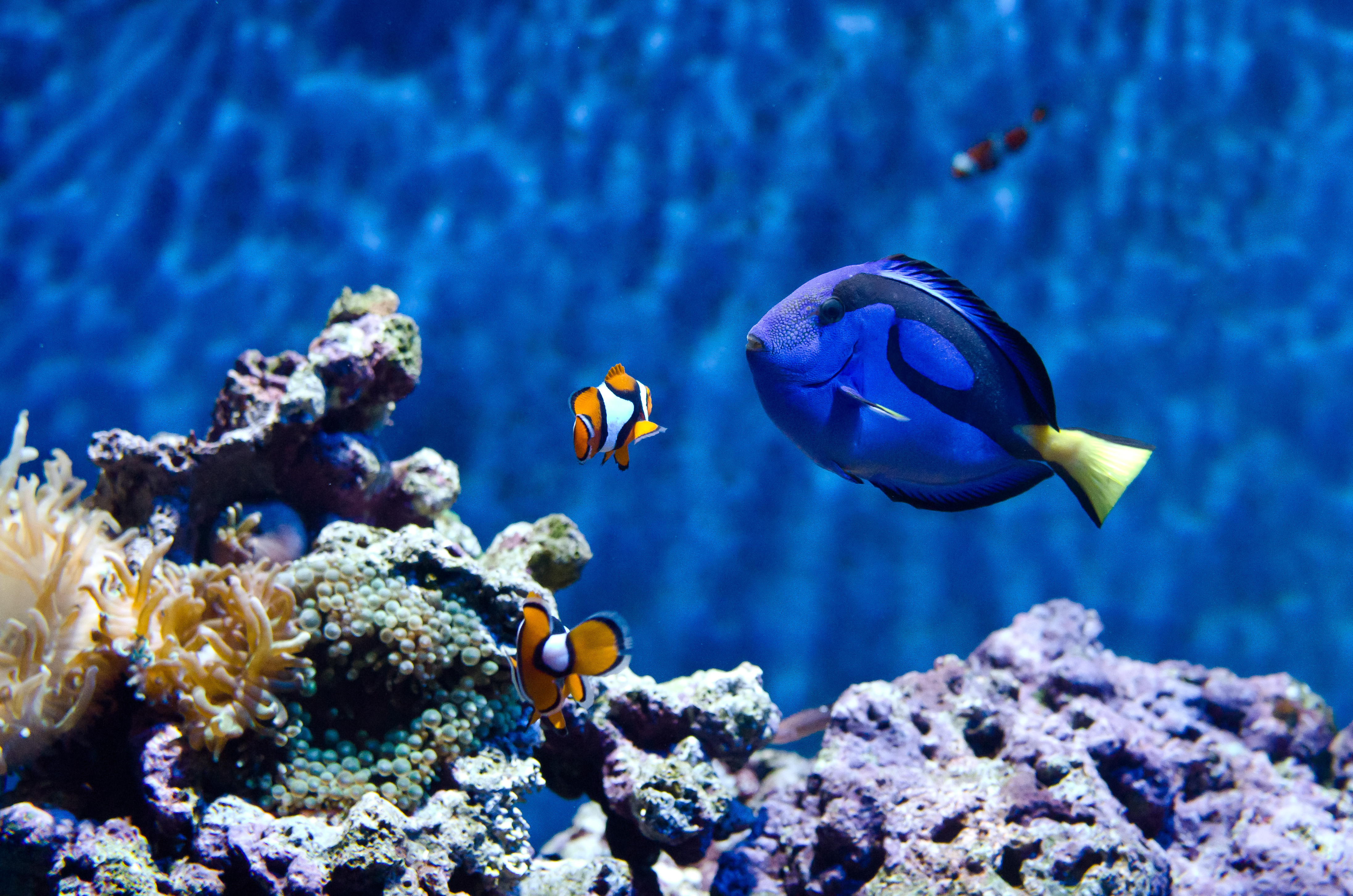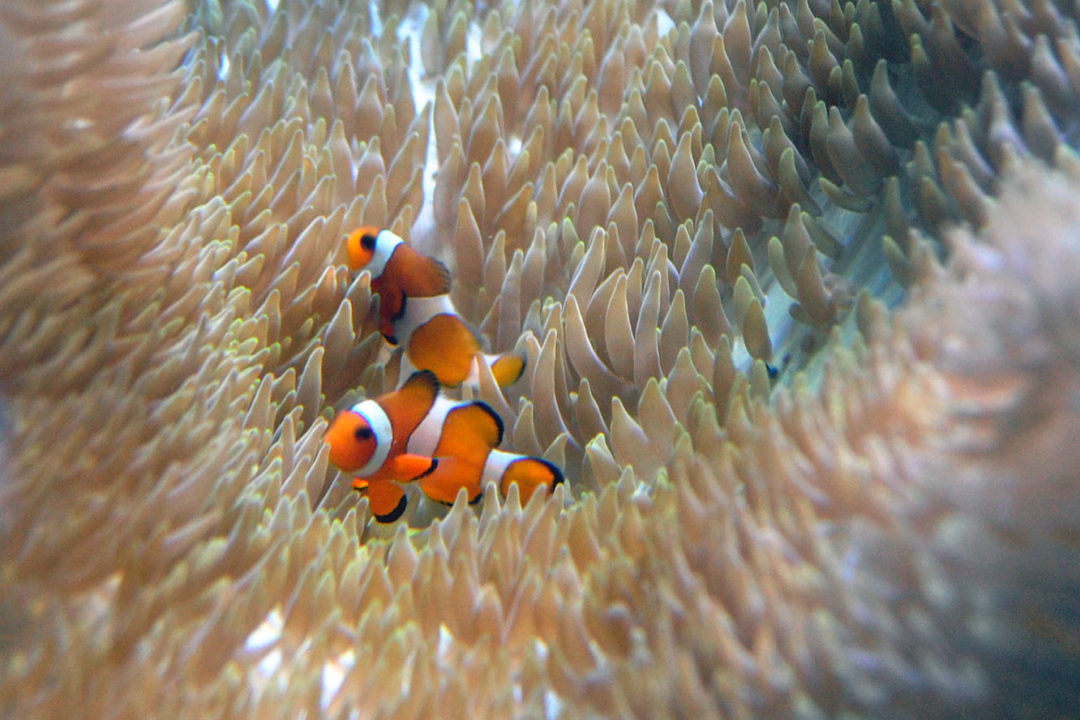When I stumbled back home from the 18th EASA Biennial Conference in Barcelona (23-26 July), my wife asked how it went. All I could say was, “I met nice people.” The truth is, I was totally wiped out from the conference hustle, and all I brought back as a souvenir was a hefty dose of cortisol. I completely ignored the mental health tips from the organizers (taking breaks, going to the beach, remembering to eat, and so on) and ended up with a brain that just wouldn’t quit.
Before the conference even started, I was having nightmares about it. Let me tell you, trying to afford a trip to sunny Barcelona in high season on a broke PhD candidate’s budget is no joke. My EASA funding application was rejected, and I wondered if I could even afford to attend the conference. Tellingly, I had competed with 670 other anthropologists for cash, demonstrating the precarious situation most of us find ourselves in. Determined to make it to Barcelona, I emptied my savings without thinking.
As if I didn’t have enough to worry about, the organizers sent an email with packing tips that sounded like a laundry list of worst-case scenarios. They warned us about the global IT outage, impending sunburns, a lack of lunch, pickpocketers, and a growing anti-tourist sentiment in Spain. I couldn’t stop thinking about the impact of such big conferences like EASA. It felt like all our reflections during the pandemic lockdowns were put into the bin. And still, I went, acting like my life depended on it. Is that not a case of being addicted to academic enjoyment?
Navigating turbulent waters
In my mind, I started pairing all this chaos with Dory and her famous advice to “just keep swimming, swimming, swimming.” You know Dory? The Blue Tang fish who suffers from short-term memory loss? Anyway, her energetically optimistic mantra embodying the famous sports brand ideology (don’t think, just do) got me pondering. This whole idea of non-thinking or non-remembering is both familiar and annoying, don’t you think?
On one hand, it’s like a positive affirmation to keep pushing ahead. On the other hand, there’s a sneaky hint of pessimism and resignation in there; you might as well keep swimming, even if it’s all a bit fishy. It hit me that Dory’s “just keep swimming” perfectly mirrored the absurd academic world, akin to a shoal navigating the turbulent waters of the neoliberal university.
Dory’s annoying anthem would turn into the soundtrack of my EASA experience. On the airplane to Barcelona, it served as a satirical fanfare, mocking my decision despite all the signs of danger and inconsistencies. During the conference, “Just keep swimming” became a little personal note when I believed speakers lived in a bubble and imagined them swimming away. The setting in Barcelona, with the Maritime Museum, the harbor, and the beach, also heightened my imagination of mindlessly swimming behind a crowd to the conference room or fellow panelists to bars and restaurants. Upon arrival back in the Netherlands, Dory’s advice gained another meaning, as it allowed me to gracefully swim away from a robotic public transport service desk operator refusing to print my train ticket, insisting I download the app. Her mantra thus moved between being a comedic insult and a source of inspiration.
So there I was, diving into the Pixar underwater world to unwind after a wild week in Barcelona. It was ultimately an attempt to find a more satisfactory answer to my wife’s question about the EASA conference experience. Who knew I needed animated fish to regain my sanity and recover from a conference-induced meltdown?
Colorful fish venturing the dark
In Finding Nemo, there is a heartbreaking scene of hopelessness when Marlin—the overprotective widowed father clownfish—is on the verge of giving up his search for his son, Nemo.[1] His son has been captured by a diver (after an attempt to prove himself to his father and friends) and placed in a dentist’s fish tank in Sydney. As if that’s not bad enough, the only lead for the rescue mission, the diver’s mask, slips through their fins and disappears into the abyss. But just when all hope seems lost, in swims Dory.
Dory, the forgetful blue tang who accidentally buddied up with Marlin after a head-on collision, grabs Marlin by the fin and quips, “Hey, Mr. Grumpy Gills, when life gets you down, you know what you gotta do?” Despite Marlin’s grumpy retort, “I don’t wanna know what you gotta do,” she bursts into song—“Just keep swimming, just keep swimming, just keep swimming, swimming, swimming. What do we do? We swim, swim.” Reluctantly but with no other options, Marlin follows Dory as they venture into the darkness of the deep ocean.
While Marlin is motivated by trauma, Dory, who has memory loss, can easily let go of her past and isn’t burdened by fear. So Marlin is feeling something like, “First a barracuda killed my family, then I failed to protect my only son, I’m traumatized for life,” and Dory plays the “Just keep swimming” tune with the voice of a whale without care.
“Just keep swimming” serves no purpose or meaning on its own. It captures a pure instinctive habit, a compulsion to repeat, a force that refuses to die (which can be a real pain, a total nightmare), even if it has to kill the subject. Finding Nemo shows this in a series of temporary deaths and rebirths. Dory’s lesson to “let go” (and risk dying for something) is beautifully highlighted in a scene representing one of the rebirths when a whale blows them out of its blowhole. This is how Dory’s unwavering momentum ultimately gains direction when combined with Marlin’s quest to find his son. In other words, the odd couple can best be understood as voices in each other’s heads. As they move further into the dark, this is brilliantly expressed by Marlin’s reaction to Dory’s song “Now it’s stuck in my head” or Dory’s question, “Are you my conscience?” Marlin helps Dory to remember, and Dory encourages Marlin to persevere. The takeaway from Finding Nemo? Embrace your undead force and put it at the service of a stream of life. [2]

A flow of existential questions
This is easier said than done. Imagining a destructive stream of death is easier than a constructive stream of life. Our environment leaves us pondering existential questions like: How do we find our purpose? How do we discover the stream of life? What should we contribute to make the world a better place? And how do we hold ourselves accountable for making it happen? Without a specific roadmap, we crave something external to guide us. It’s like standing on the ocean’s edge, feeling the vast emptiness and openness, and demanding something worth believing in and fighting for. Deciding on something worth dying for is daunting.
Anthropology also faces its own existential threats. The recent EASA conference in Barcelona, themed Doing and Undoing with Anthropology, was supposed to illuminate questions such as: How to disassemble and reassemble anthropology differently? How can we reimagine and reconfigure what it means to do anthropology today? Or, to quote the abstract of Allegra’s Radical Optimism panel: “How can anthropologists impact the world? Anthropology excels at critique and deconstructing, but its ability to reconstruct and contribute to political change is often less straightforward.”
As quick as I was to register for the conference, as quick as I decided I had seen too much. It became apparent that the fault lines of the organization were more visible than its unifying aspects. It left me wondering if the goal was to avoid resolving anything, ensuring we’d be stuck debating the same “urgent” topics a few years from now. A comic remark specifically struck me: “We do not have much of an influence” regarding important questions of our time. What did the intense rush of academic engagement ultimately serve? Only clicks and likes?
I questioned whether my PhD journey had finally led me to this painful realization or if my panel choices had let me down. Did I become too fixated on the conference theme and program, hindering my ability to embrace the experience fully? Was I lured by the conference description—a cunning umbrella theme to allow for as many presentations as possible? Was I just too tired and sensitive, perhaps even a bit grumpy? What could I learn from Finding Nemo?
Sentimental Sharks
In Finding Nemo, three sharks grapple with their natural predatory instincts and form a fish-friendly support group to resist their urges. You’ve got Bruce, the great white jokester, frustrated hammerhead Anchor, and hyperactive mako Chum—all attempting to move beyond their stigma as mindless eating machines by participating in a mock Alcoholics Anonymous meeting. It’s like they’re attending a hilarious version of the conferences we organize.
Bruce leads the group in reciting a pledge to rethink their image: “I am a nice shark. Not a mindless eating machine. If I am to change this image, I must first change myself. Fish are friends, not food.” Well, of course, not ALL fish—“Except for stinking dolphins,” says Anchor. Chum agrees: “They think they are so cute. Look at me; I’m a flippy little dolphin; let me flip for you. Ain’t I something?” Bruce then continues, “Today’s meeting is all about step 5: bring a fish friend.” Later, Bruce coerces Marlin to tell a joke, but as Marlin struggles to tell it, he spots the divers’ mask and tells the story of Nemo’s kidnapping. Chum responds, “Humans, they think they own everything.” Anchor adds, “Probably American.” Before you know it, Bruce starts bawling, “Now there is a father looking for his little boy. I never knew my father.” The sharks engage in a group hug.
Dory wants to ask the sharks to read the letters on the back of the mask. Not on board with this, Marlin accidentally smacks Dory with the mask, causing blood to spill into the water. And, you guessed it, Bruce’s predatory instincts take over. As Bruce ferociously chases after Marlin and Dory, Anchor and Chum cannot bring him back to his senses. But in a genius move, Dory and Marlin outsmart Bruce with a torpedo.
The irony of the shark scene is just too real. The sharks try to come across as super friendly and inclusive, but in reality, they are just concerned with their own image. When Marlin is pressured into giving his testimonial, he claims he doesn’t have any problem, and all the sharks go: “DENIAL!” The friendly sharks themselves deny the existence of fundamental antagonisms and the fact that they are hosting a meeting for the sake of a meeting. These sharks are more concerned about their reputation than helping poor Marlin and Dory. Is such a compulsion to repeat not also at play at the conferences and meetings we attend and organize, including those where we complain about shuffling to the beat of the neoliberal university drum?
Even if you feel like a fish out of the water in certain circumstances, I’ve discovered that the key is to “keep swimming” (or gasping) no matter how choppy the academic waters get. It’s also a work of liberation.
Swimming against the stream of pessimism and resignation
I hope I’m not becoming too cynical or turning into a pessimist, but wouldn’t it be great if I could cruise carelessly through conferences and academic life like Dory from Finding Nemo? She called Bruce’s “get-together” a “party,” confidently stood in front of the sharks and declared, “I am Dory, and I have never eaten a fish.” She even asks, “Oh, is the party over?” when the mines explode, and the sharks disappear, already forgetting the deadly situation she just was in.
Dory, that unforgettable blue tang fish, taught Marlin the power of optimism. Dory reminds us that even when things seem bleak, we must keep moving forward and never give up. Her “just keep swimming” mantra gained this emancipatory meaning when it became a rebellious command—“Keep swimming!”—as the fish combatted death.
At the end of the movie, Dory gets caught in a net, and Nemo and Marlin rally the other fish to swim down until the netting loosens from the ship. Although it is tempting to think that fish would become food, they collectively liberate themselves from their predicament. It’s an inspiring scene and a perfect metaphor for navigating the challenges of academic life. Even if you feel like a fish out of the water in certain circumstances, I’ve discovered that the key is to “keep swimming” (or gasping) no matter how choppy the academic waters get. It’s also a work of liberation.
So, returning to my wife’s question about how the EASA conference went, I’ll answer like Dory because it’s simply the best response. Like Dory—who would have already forgotten all about it—I cannot go into the details of why I attended the conference or whether it met my expectations. The point is that I did it and survived. I had never expected to say something as cheesy as this, but sometimes, all we need is a little bit of Dory wisdom to find our way through the darkest moments.
[1] Finding Nemo is not scientifically accurate. Some inaccuracies: 1) Clownfish can change sex 2) Clownfish can eat their own eggs 3) Barracudas rarely eat clownfish 4) Bruce, the apparently male shark, does not have claspers, and 5) Far from the ideal father figures, male turtles are responsible for one of nature’s most cruel stories. Instead of arguing that Pixar should have done more research on the facts of the fish they portray, I think it is precisely the inaccuracies that allow for great interpretations of the movie.
[2] In this analysis, I draw heavily on Lilian Munk Rösing’s Pixar with Lacan: The Hysteric’s Guide to Animation published in 2015 by Bloomsbury.





Like King Louie told the Prince of Egypt : The world is a jungle….,and I’m the king !
Keep dreaming.
You’re a real author, Sven.
Keep writing.